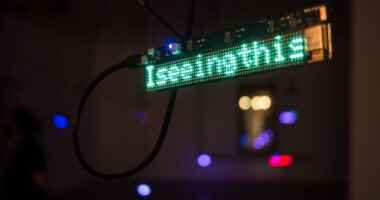Non-fungible tokens (NFTs) are being applied to the job market, creating a new concept called Job NFTs. These are unique digital tokens representing ownership of specific job opportunities or work-related assets. Built on blockchain technology, Job NFTs ensure authenticity and uniqueness of each token.
Job NFTs function by creating a digital record of a job opportunity, including its description, requirements, and employment terms. This record is tokenized and can be traded on NFT marketplaces. The creation and management of Job NFTs occur through smart contracts, which are self-executing agreements with terms written directly into code.
This automation enforces the terms and conditions, providing transparency and security for both employers and employees. These tokens can incorporate royalties or revenue-sharing mechanisms, allowing the original creator to earn a percentage of future earnings generated by the job opportunity. Job NFTs can also represent ownership of specific skills or qualifications, enabling individuals to tokenize and sell their expertise as digital assets.
The concept of Job NFTs introduces a new approach to work opportunities in the digital age, offering a decentralized and transparent method of job ownership and employment. It presents new possibilities for freelancers and independent workers to monetize their skills more directly. Overall, Job NFTs are changing perspectives on work and employment, proposing a new paradigm for job ownership and career development in the digital economy.
Key Takeaways
- Job NFTs are non-fungible tokens that represent ownership of a specific job or work agreement, stored on a blockchain.
- Job NFTs have the potential to disrupt traditional employment models by allowing for more flexibility and autonomy for workers.
- The rise of Decentralized Autonomous Organizations (DAOs) is closely linked to the use of Job NFTs, as they enable decentralized decision-making and governance.
- Job NFTs are creating a new frontier for freelancers in the gig economy, offering opportunities for more secure and transparent work agreements.
- Job NFTs have the potential to disrupt recruitment and HR processes by streamlining verification and credentialing, reducing administrative burdens.
The Impact of Job NFTs on Traditional Employment Models
Decentralization of Work Opportunities
One of the most notable impacts is the decentralization of work opportunities, as job NFTs allow for direct peer-to-peer transactions between employers and employees without the need for intermediaries such as recruitment agencies or job boards. This could lead to a more efficient and transparent job market, where individuals have greater control over their employment opportunities and can negotiate directly with potential employers.
Redefining Job Security
Furthermore, job NFTs have the potential to redefine the concept of job security, as individuals can own and trade their job opportunities as digital assets. This could lead to a more fluid and dynamic labor market, where individuals have the flexibility to move between different job opportunities based on their skills and preferences. Additionally, the use of smart contracts in job NFTs ensures that the terms of employment are automatically enforced, reducing the need for traditional employment contracts and legal agreements.
Challenges and Concerns
On the other hand, the rise of job NFTs could also lead to challenges in terms of labor rights and protections. As work opportunities become tokenized and traded as digital assets, there is a risk that workers’ rights could be undermined, leading to increased precarity and insecurity in the labor market. It will be crucial for policymakers and labor organizations to address these challenges and ensure that the introduction of job NFTs does not lead to exploitation or inequality in the workplace.
The Rise of Decentralized Autonomous Organizations (DAOs) and Job NFTs

The emergence of decentralized autonomous organizations (DAOs) has been closely linked to the rise of job NFTs, as these two innovations share a common goal of decentralizing and democratizing work opportunities. DAOs are organizations that are run by smart contracts on a blockchain, allowing for decentralized decision-making and governance. Job NFTs can be used within DAOs to represent ownership of specific roles or responsibilities within the organization, allowing individuals to participate in the governance and operations of the DAO in a transparent and equitable manner.
By using job NFTs within DAOs, individuals can have a direct stake in the success of the organization and can be rewarded for their contributions through revenue-sharing mechanisms embedded in the NFTs. This creates a new model of organizational structure where individuals have greater agency and ownership over their work within the organization. Additionally, job NFTs can be used to incentivize participation in DAOs by offering unique job opportunities or roles as digital assets that can be bought, sold, or traded within the organization.
The combination of DAOs and job NFTs has the potential to revolutionize traditional organizational structures by creating more inclusive and participatory models of governance and decision-making. This could lead to a shift away from hierarchical and centralized organizations towards more fluid and dynamic structures that empower individuals to contribute to the success of the organization in a meaningful way. As DAOs continue to gain traction in various industries, the use of job NFTs within these organizations is likely to become more prevalent, further reshaping the future of work and organizational dynamics.
Job NFTs and the Gig Economy: A New Frontier for Freelancers
The gig economy has seen tremendous growth in recent years, with an increasing number of individuals opting for freelance work over traditional employment. Job NFTs have the potential to further revolutionize the gig economy by providing freelancers with a new way to monetize their skills and expertise. Freelancers can tokenize their work opportunities as NFTs, allowing them to sell or trade their services directly on digital marketplaces without the need for intermediaries.
Job NFTs also offer freelancers a way to establish ownership over their work and negotiate directly with clients based on the terms embedded in the NFT. This could lead to a more transparent and equitable freelance market, where freelancers have greater control over their work opportunities and can earn royalties from their ongoing contributions. Additionally, job NFTs can be used to represent specific skills or qualifications, allowing freelancers to showcase their expertise as digital assets that can be bought or sold on various platforms.
Furthermore, job NFTs could help address some of the challenges faced by freelancers in terms of payment security and contract enforcement. By using smart contracts embedded in job NFTs, freelancers can ensure that their terms of service are automatically enforced, reducing the risk of non-payment or contract disputes. This could lead to a more secure and reliable freelance market, where freelancers have greater confidence in their ability to monetize their skills in a decentralized and transparent manner.
The Potential for Job NFTs to Disrupt Recruitment and HR Processes
The introduction of job NFTs has the potential to disrupt traditional recruitment and HR processes by decentralizing and democratizing the way work opportunities are created and managed. Job NFTs allow for direct peer-to-peer transactions between employers and employees without the need for intermediaries such as recruitment agencies or HR departments. This could lead to a more efficient and transparent recruitment process, where individuals have greater control over their job opportunities and can negotiate directly with potential employers based on the terms embedded in the NFT.
Furthermore, job NFTs could lead to a more meritocratic approach to hiring, as individuals can tokenize their skills or qualifications as digital assets that can be bought or sold on various platforms. This could lead to a more inclusive and diverse job market, where individuals have greater agency in showcasing their expertise and competing for work opportunities based on their abilities rather than traditional credentials or affiliations. Additionally, the use of smart contracts in job NFTs ensures that the terms of employment are automatically enforced, reducing the need for traditional employment contracts and legal agreements.
On the other hand, the rise of job NFTs could also lead to challenges in terms of privacy and data security in recruitment processes. As work opportunities become tokenized and traded as digital assets, there is a risk that sensitive personal information could be exposed or exploited. It will be crucial for organizations to address these challenges by implementing robust data protection measures and ensuring that job NFTs are used in a responsible and ethical manner within recruitment processes.
Job NFTs and the Future of Skills Development and Credentialing

The use of job NFTs has the potential to revolutionize the way skills development and credentialing are approached in the digital age. Job NFTs can be used to represent ownership of specific skills or qualifications, allowing individuals to tokenize their expertise as digital assets that can be bought or sold on various platforms. This opens up new possibilities for individuals to monetize their skills in a more direct and transparent manner, creating new incentives for continuous learning and professional development.
Furthermore, job NFTs could lead to a more decentralized approach to credentialing, as individuals can showcase their expertise through digital tokens rather than traditional diplomas or certificates. This could lead to a more inclusive and accessible credentialing system, where individuals have greater agency in demonstrating their abilities based on tangible evidence embedded in job NFTs. Additionally, job NFTs could be used to incentivize ongoing skills development by offering unique job opportunities or roles as digital assets that can be earned through continuous learning efforts.
The combination of job NFTs and skills development has the potential to reshape traditional approaches to education and training by creating new pathways for individuals to showcase their expertise in a decentralized and transparent manner. As organizations continue to recognize the value of skills-based hiring over traditional credentials, the use of job NFTs as a means of credentialing is likely to become more prevalent, further reshaping the future of skills development and professional advancement.
The Legal and Ethical Implications of Job NFTs in the Workplace
The introduction of job NFTs raises important legal and ethical considerations that must be addressed as these digital assets become more prevalent in the workplace. One key consideration is around ownership rights and intellectual property, as individuals tokenize their work opportunities or skills as digital assets. It will be crucial for organizations to establish clear guidelines around ownership rights related to job NFTs and ensure that individuals’ intellectual property is protected from exploitation or unauthorized use.
Furthermore, the use of smart contracts in job NFTs raises questions around contract enforcement and dispute resolution. Organizations will need to ensure that smart contracts embedded in job NFTs are legally enforceable and comply with existing labor laws and regulations. Additionally, mechanisms for resolving disputes related to job NFTs must be established to ensure that individuals have recourse in cases of non-compliance or breach of contract.
On an ethical level, organizations must consider how the introduction of job NFTs may impact labor rights and protections for workers. As work opportunities become tokenized and traded as digital assets, there is a risk that workers’ rights could be undermined, leading to increased precarity and insecurity in the workplace. It will be crucial for organizations to uphold ethical standards related to fair labor practices and ensure that the introduction of job NFTs does not lead to exploitation or inequality in the workplace.
In conclusion, while job NFTs offer exciting possibilities for decentralizing work opportunities and empowering individuals in new ways, it is essential for organizations to address these legal and ethical implications to ensure that the introduction of job NFTs is done in a responsible and sustainable manner that upholds labor rights and protections for workers.
FAQs
What are Job NFTs?
Job NFTs are non-fungible tokens that represent ownership or proof of authenticity of a specific job or employment opportunity. They are unique digital assets that can be bought, sold, or traded on blockchain platforms.
How do Job NFTs work?
Job NFTs work by using blockchain technology to create a digital representation of a job or employment opportunity. This digital asset can include details such as job description, salary, benefits, and contract terms. It can be bought and owned by individuals or organizations, providing a new way to engage in employment transactions.
What is the impact of Job NFTs on the future of employment?
Job NFTs have the potential to revolutionize the way people find and secure employment. They can provide a more transparent and efficient way to match job seekers with employers, as well as offer new opportunities for freelancers and gig workers to showcase their skills and experience.
Are there any risks or challenges associated with Job NFTs?
While Job NFTs offer exciting possibilities, there are also potential risks and challenges to consider. These may include issues related to privacy, security, and regulatory compliance. Additionally, there may be concerns about the potential for discrimination or exploitation in the NFT job market.
How can individuals and businesses get involved with Job NFTs?
Individuals and businesses can get involved with Job NFTs by exploring blockchain platforms that support the creation and trading of NFTs. Job seekers can consider showcasing their skills and experience through NFTs, while employers can explore new ways to attract and engage talent through this emerging technology.





